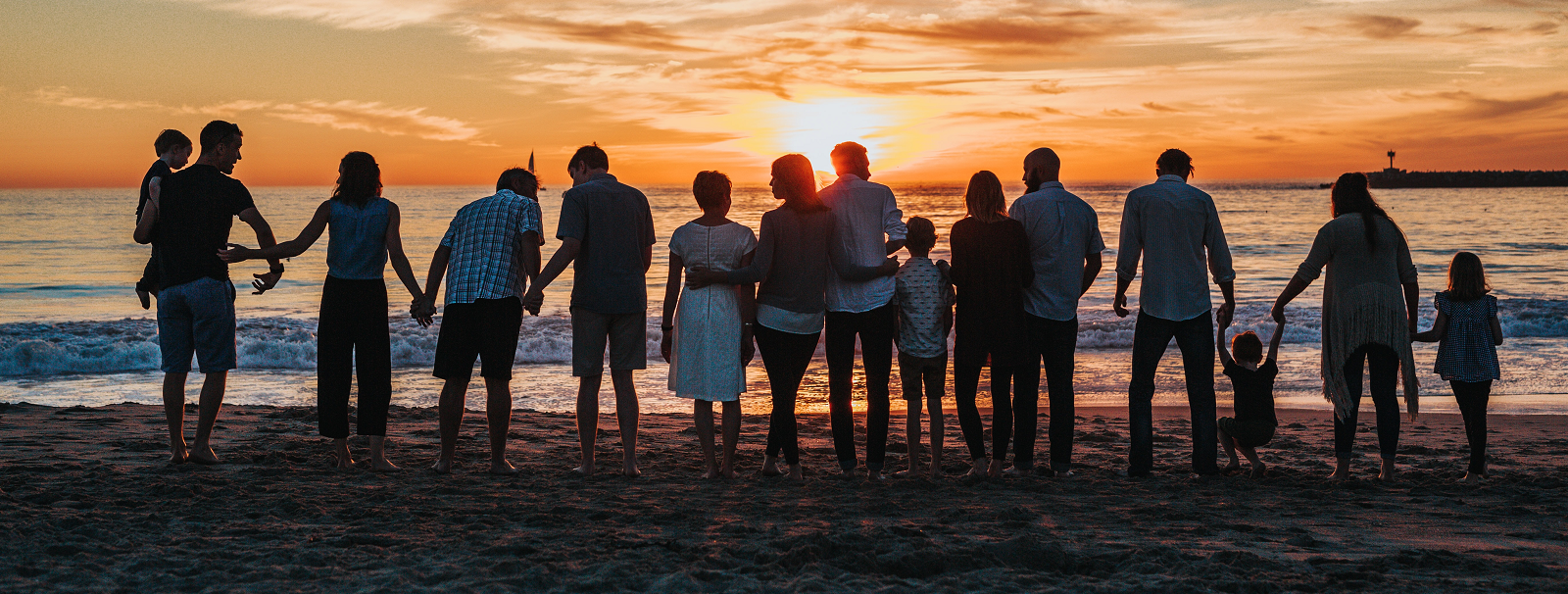This website uses cookies so that we can provide you with the best user experience possible. Cookie information is stored in your browser and performs functions such as recognising you when you return to our website and helping our team to understand which sections of the website you find most interesting and useful.

Blog
People Matter
What does a child really need? For centuries, it was believed that if a child’s basic needs of food, water and shelter were met, children would generally turn out okay. However, in the 1950s this idea was challenged – and theories of child development have never quite looked the same since.
In 1958, a researcher named Harry Harlow carried out an experiment with monkeys. He separated them from their families and they were reared in isolation for different periods up to a year. This isolation was permanently damaging to the monkeys, and the extent of their abnormal behaviour increased the longer they were separated from their families.
Harlow then went on to separate some monkeys from their mothers and place them with two surrogate ‘mothers’ – one made of wire and one covered in soft towelling. While the wire mother provided milk for nearly 22 hours a day, the monkeys would remain on the cloth mother as much as possible. They would only latch to the wire mother when forced by hunger, returning to the cloth mother after they were fed. The monkeys needed so much more than the basic requirements of survival; they needed warmth and comfort from their material ‘mother’.
While these experiments are criticised for their cruelty to the monkeys – and rightly so – this research and the research that followed it demonstrates something that many of us intrinsically know; children need more than just food, water and shelter to thrive.
Children and young people need safety, love, a sense of belonging and the opportunity to reach their potential. Many children across the world are lucky enough to have these needs met by their families, who love, protect and teach them. But for other children, this is unfortunately not their experience.
Some children do not have a family. For others, their family is a place of hurt, neglect and abuse. Through no fault of their own, many of these children end up being cared for outside of their birth families. Some children may live in residential care, others cared for within foster families, some live with extended family members and others still may be adopted. For all children, but particularly children who do not grow up with their birth families, one thing is clear: people matter.
Growing up, these children may not have had a mum or dad who responded to them with love and affection when they cried. They may not have had a mum or a dad who celebrated their birthday and made them feel special. They may not have had a mum or a dad who sat down to do their homework with them each night. These children and young adults need extra-special love and affection. For their brains to develop, to have the ability to form and maintain relationships and for them to reach their full potential, they need consistent, safe, stable and permanent people to attach to.

A lot of the young people Pursuit International works with were raised in residential care. These young people are amazing, intelligent, kind, funny, hard-working and resilient, but the transition from residential care to independent adult life can be really challenging.
For all of us, the transition into adulthood can be tough. Whether it’s moving to university, moving into your first house or getting your first job, all of these are huge changes in our lives. But what if you had to do all of these things – and more – all at once, all by yourself, with little-to-no help, advice or resources? This is what can happen for children leaving residential care.
When I went through a time of transition, I called my parents A LOT. They helped me move in to my university accommodation, they were on the other end of the phone while I tried to write a CV and I could go and visit most weekends. I can only imagine how difficult this transition would have been if I didn’t have people by my side throughout.
But for many children leaving residential care across the world, doing this transition alone is the reality. The heart of Pursuit International’s RAMP project is to love and support young people through this process, and to ensure they have people by their side and cheering them on.
I believe everyone has a role to play in the lives of looked-after children, because they are so worth it. Each child and young person who has experienced neglect, abuse and – through no fault of their own – become a looked-after child will experience trauma and loss. Each one of these children deserve people and a home where they will be loved, nurtured and able to thrive. So what can you do to support them?
Firstly, you can support those who have been, and will be, the peoplewho matter to the lives of these children and young adults; the staff on the ground that will continue to walk the journey with these young people as they enter adulthood. Just £30 provides a month’s worth of mentoring support for our young people.
Secondly, you could be the person who matters to a young person in care or who has left care. In the UK alone we need 8100 foster carers to meet the needs for our looked-after children right here in the UK – you could be a carer to a child who needs a family. Or if you live in India, you could train to work with children in care in your own community, you could invite a young person over for dinner or consider fostering a child. No matter where you live, be that in India or the UK or anywhere in there world, there are children in care who need families and friends; who need people.
Hayley McNiece is a Social Worker who spent a year volunteering in one of the children’s homes we partner with. She’s a massive friend of Pursuit and we love her – cheers Hayley!
More from the Blog
- I think there’s a reason that one of the most enduring quotes of all time is: “There’s no place like home.” For me, I never quite understood it. Why would Dorothy want to leave the colour and adventure and freedom of Oz, to return to a sepia-toned Kansas with a… Read More
- I’ve always thought schools should do classes in “Adulting”. The education system has determined that we need to be taught algebra to make it as a grown up, and yet things like mortgages remain a mystery to figure out as we go along. As much as I loved doing Art… Read More
- Being a teenager is a tough gig. You have the pressure of exams which may set the course for your future career. You’re figuring out not only what you want to do in life; but who you want to be. You’re falling in love for the first time, and dealing… Read More
 Home Matters
Home Matters
 Life Skills Matter
Life Skills Matter
 Mental Health Matters
Mental Health Matters

